Talking trash on tour
| August 31, 2023
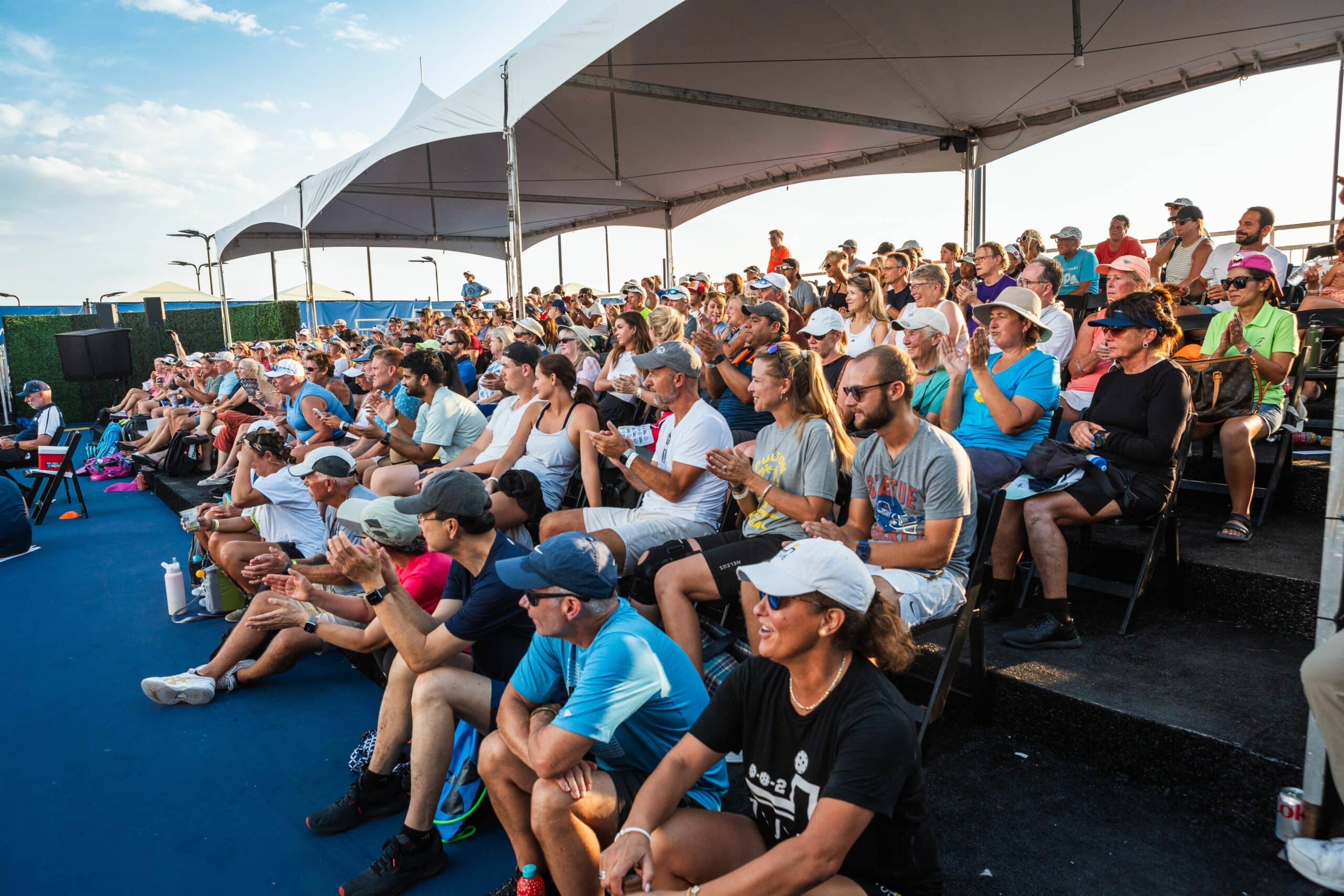
Ever watched Dave Weinbach play?
Well, let’s put this another way. If you’ve watched him, you’d know. He calls himself “The Badger” and he’s more animated than Saturday morning cartoons.
He jumps around, shouts, and laughs. He yells and pumps himself up with a volley of one-liners like it’s an open-mic night at the local comedy club.
Let’s just say, Dave Weinbach is memorable. Some people like it, and others, well, not so much.
“That kind of stuff makes me and my partner play better,” Weinbach said. “It’s OK to do that. I wish there was more color in the game.”
Weinbach adds color to the game like a toddler slops finger paint. It’s everywhere. What some might call “color” is annoying to others. What some call banter, others call trash-talking.
What we all know, however, is that talking, cheering, carrying on and more are part of a mental game that can definitely be used to gain an advantage.
It happens in football, basketball, baseball, and just about any other sport where your opponent is within earshot, so, yep, it’s happening in pickleball, too.
And as the sport grows and more players from all different backgrounds get involved, mastering the mental game will be an important aspect of pickleball.
“We’re seeing a lot more personalities come into the game,” said Weinbach, who plays both senior and regular pro events. “A lot of these players aren’t trash-talking necessarily. They are doing lots of other things, like talking to themselves to pump themselves up. I’m one of those kinds of players, too. I would never trash-talk another team.”
Of course, there’s a fine line between pumping yourself up and showing up the other team, but if either works, you just know players will use it to their advantage.
“I don’t do it,” said long-time pro, Pat Smith. “It takes a lot to get under my skin, so long as no boundaries are crossed.”
Crossing a line would most certainly result in warnings or more from referees. But short of that, there’s gonna be some talking out there.
“These players might not trash-talk you, but they might look right at you and scream, ‘Let’s Go!,’” said veteran referee Ron Ponder. “They’ll do it again and again until they get a reaction, too, so I’ve reffed a few matches where there has been some good-natured back-and-forth talking, but then it escalates. It doesn’t happen often, but yes, sometimes you need to step in and talk about some sportsmanship. At some point it can be a distraction.”
Distraction. Hmmm. Well, if it’s possible to distract another player, even for a second, wouldn’t it be worth it? After all, these are top pros competing for real money at the highest level. It’s not your local hit-and-giggle on a Tuesday morning at the rec courts.
“It’s mainly trying to have fun, and maybe trying to get under someone’s skin,” said Jeff Warnick, considered by many to be the top pro at talking. Loquacious and verbose, Warnick will talk a lot.
“I just say what’s on my mind. Sometimes it comes out and I don’t even know what happened. I’m never trying to be personal., but if your actions and talk can affect someone else and make them play worse or differently, then do it.”
And, yes, most pros realize talk isn’t personal, but sometimes it feels like it. Tyson McGuffin admits to flipping off a player at a tournament on live TV. “If I don’t like someone, I may chirp a little bit,” he said.
PPA pro, Julian Arnold, says he won’t be antagonistic unless his opponent is. Weinbach says that kind of thing, hearing a player trash-talk him, gets him fired up and emotional.
“I use it to my advantage,” Weinbach said. “I like the energy.”
That energy is infectious. It can pump crowds up as much as it pumps the players up. And just because the players might be competitive, it doesn’t mean that’s who they are off the court.
“The fans might believe I’m sort of a bad guy,” Warnick said. “But most of them are coming from tennis, or some sort of country club background. “They don’t know this is what happens in all sorts of sports.”
Ultimately, talk or no talk, players will have to figure out what works best for them. For some, that’s being demonstrative. For others, it means shutting out the outside noise.
“Mostly, it’s just boys being boys,” McGuffin said of the back-and-forth stuff. “All the talk is just on the court and it stays there. I’m usually dialed in and focused. I generally don’t engage and let them get a rise out of me. There are plenty of players out there with bad reputations. I don’t worry about them. I do me. That’s what’s important. I got a family to feed and a bag to make.”

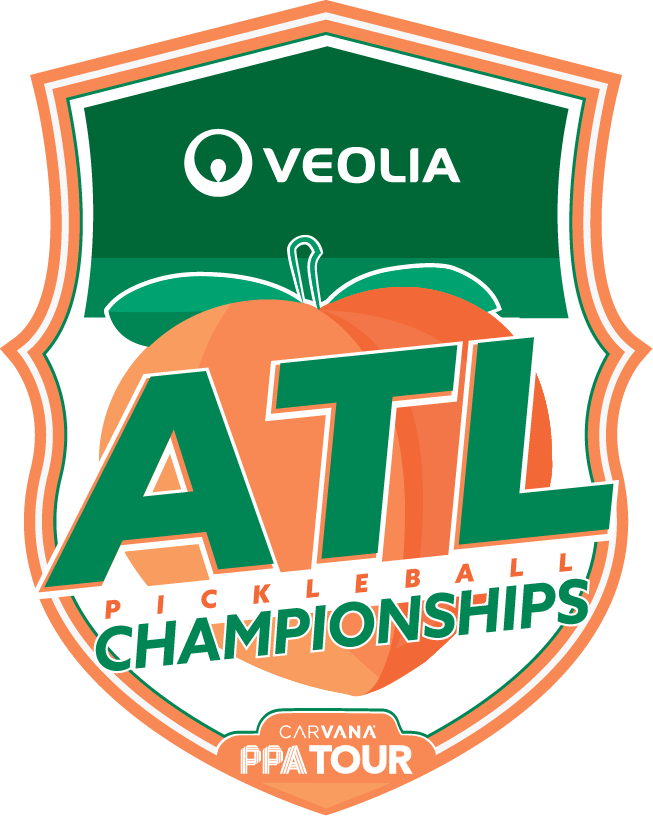
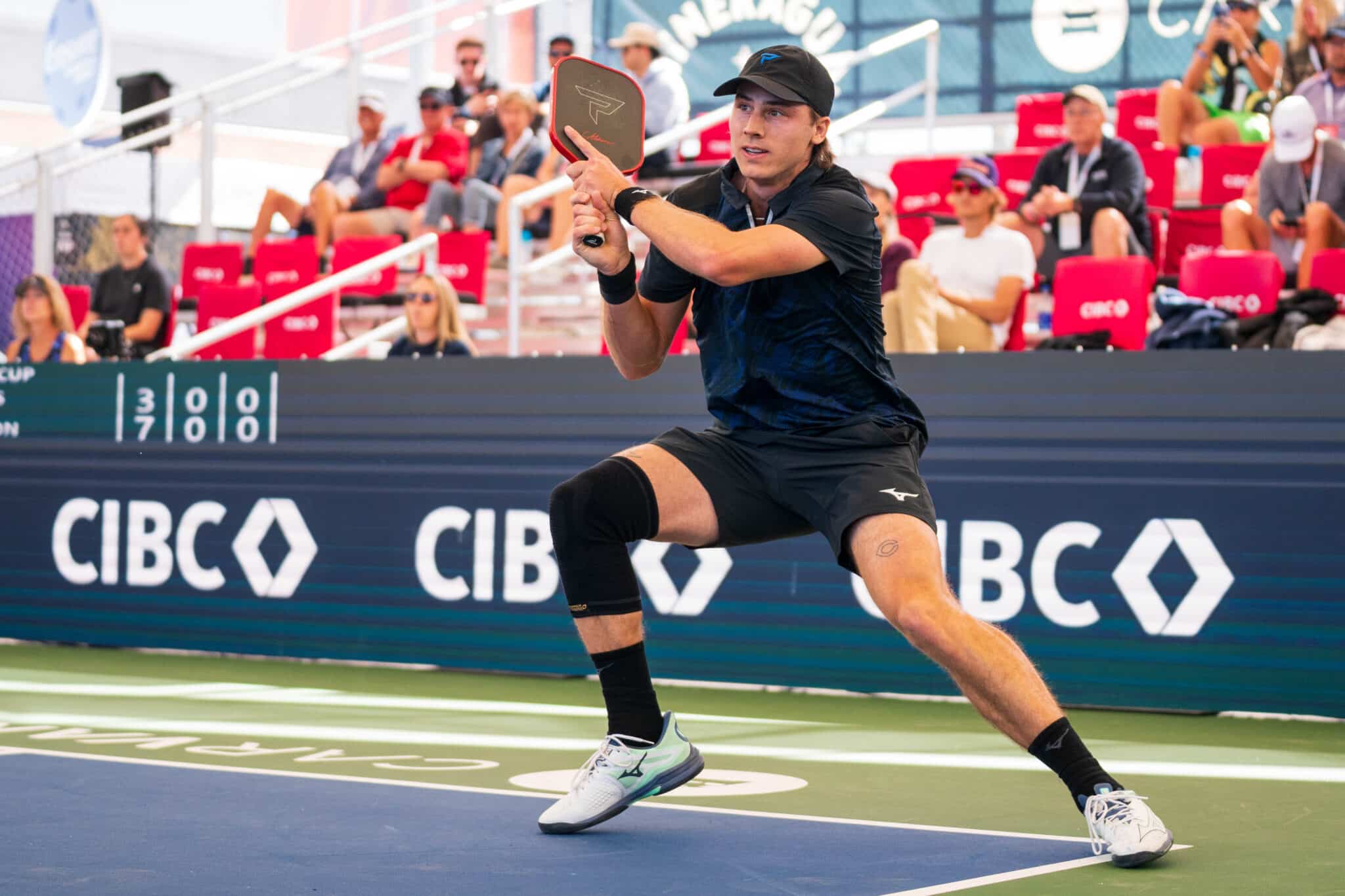
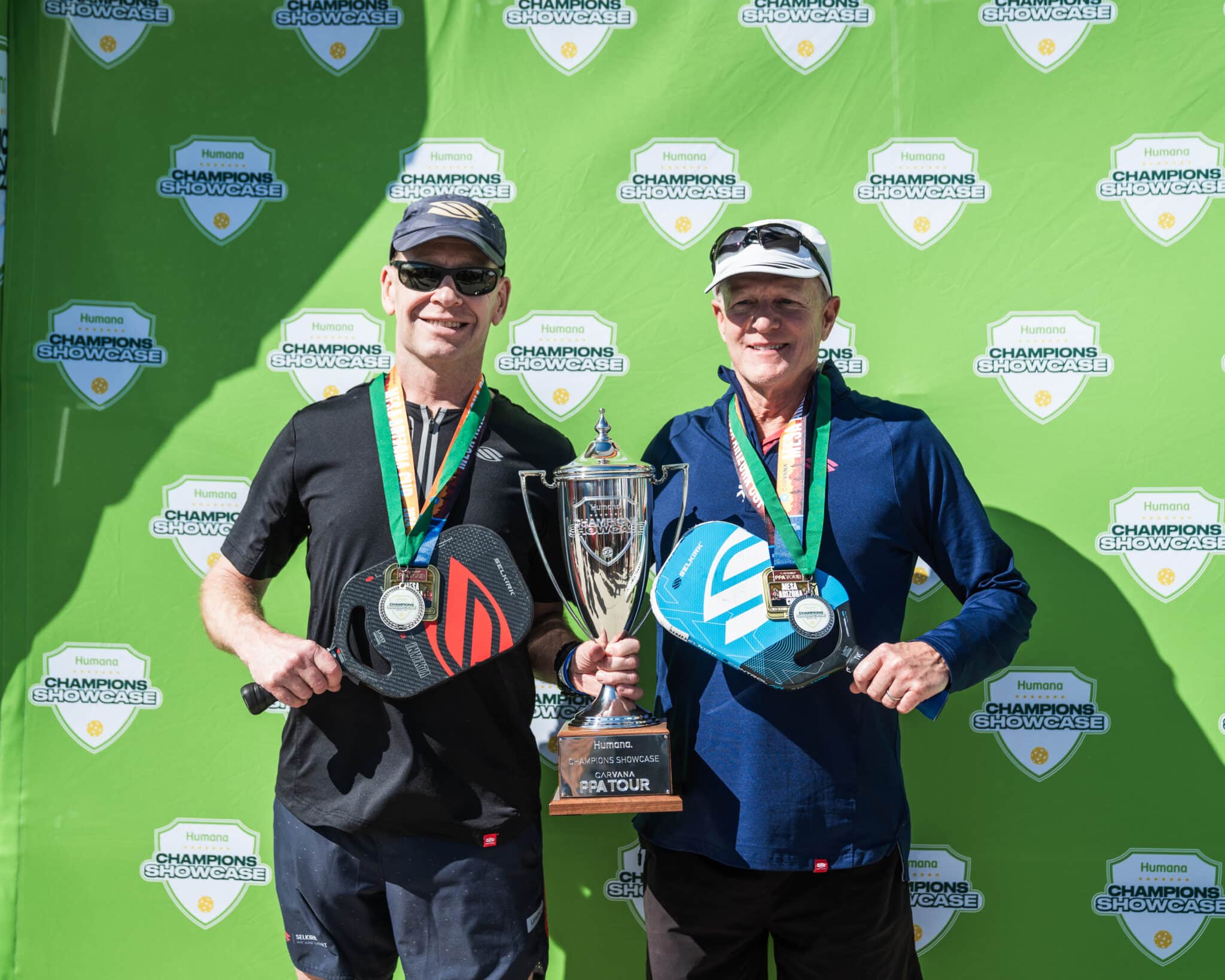
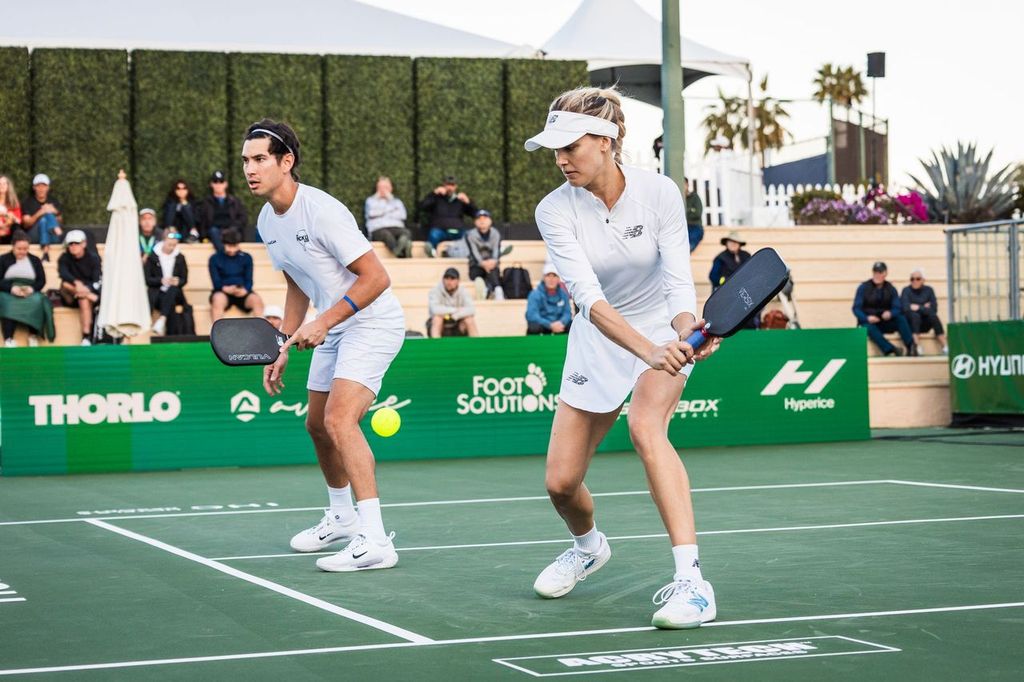
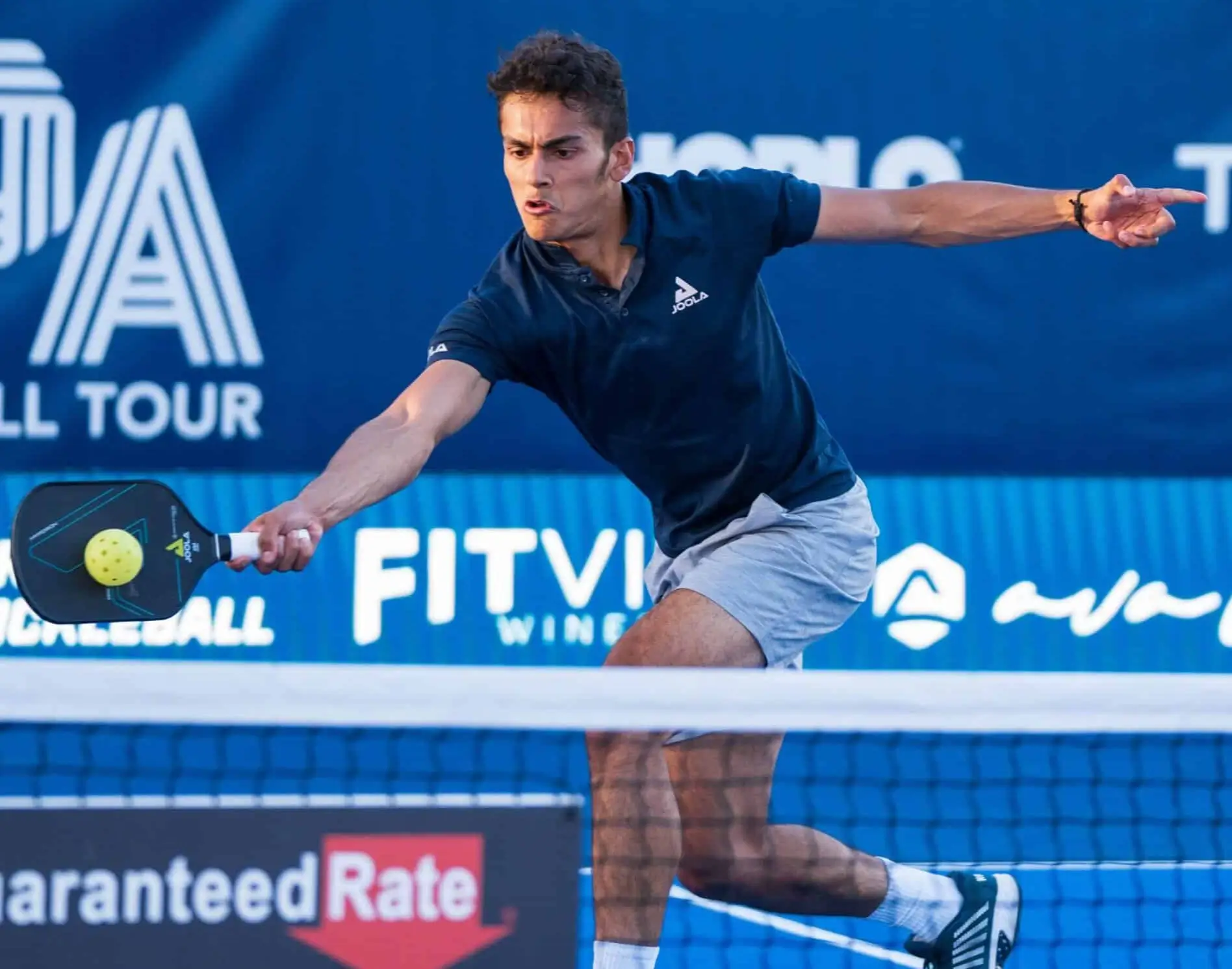
1 comment
I talk all the time on-court regularly playing just recreationally trying to make things fun for everyone. My signature reaction is, “I hate it when I do that!” It comes out when I make an unforced error -or- when an opponent makes an unforced error. If I talk any smack, it’s only after I’ve been owned by a previous shot by an opponent to remind them I’m paying them back. I’ll praise my partner’s good shots as well as my opponents (but, hopefully not as often.) It’s a game. It’s supposed to be fun. And, people like to play with me because I keep it fun …but, competitive, too.